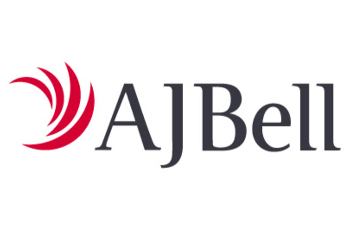Compare Lifetime ISAs
Select the best life time ISA to make the most of your tax free allowance this year.
Investment ISAs put your capital at risk & you may get back less than you originally invested
- Fund Choice: Choose between a Cash Lifetime ISA and get a competitive interest rate, or a Stocks & Shares Lifetime ISA to invest and grow
- Invest From: £1
Good to know: Cash Lifetime ISA: Interest rate of 4.60% AER (variable). This includes a 3.55% base rate (variable) and a fixed one year bonus interest rate of 1.05%. Stocks and Shares Lifetime ISA: Get started with one of three options: Cautious, Balanced or Adventurous – and tailor your investments to align with your values. Earn 3.00% AER variable on any uninvested cash you hold within Stocks and Shares Lifetime ISA. Use handy Deposit Calculator to work out how much you need to save, and how long it’ll take you to achieve your deposit goal. Useful Jargon-busting First Time Buyer guides. There are additional fees charged directly by the fund provider. Please check the key investor information document (KIID) for a particular fund for more information. To open a Lifetime ISA you must be a UK resident aged 18-39. If you need to access your money for any other reason than your first home or retirement, you’ll pay the Government penalty
Show More- Fund Choice: Over 2,000 Funds, Shares and ETF's
- Invest From: £25 per month
Good to know: Start from £25 pm & save up to £4,000 pa. Wide choice of stock market linked investments or utilize investment ideas. Simple annual management fee of 0.25%. Deal from £1.50 & never pay more than £5.00 per online deal. AJ Bell are regulated by the FCA & are covered by the FSCS. AJ Bell do not offer advice. Capital at risk
- Fund Choice: Over 3,000 Funds, Investment Trusts, Bonds, ETF's or Cash
- Invest From: £100 single or £25 per month
Good to know: Easy to setup in a matter of minutes. Start with as little as £25 pm & save up to £4,000 pa. Wide choice of stock market linked investments, or can be retained in cash. Simple annual platform fee of 0.45%. Other charges may apply. Hargreaves Lansdown are regulated by the FCA and are covered by the FSCS. Capital at Risk
What is a Lifetime ISA (LISA)?
A Lifetime ISA is a type of savings account designed for people saving towards their first house deposit or retirement.
There is a combination of tax benefits and government-funded incentives that make LISAs a great savings option if you are looking to buy your first home.
This guide will explain everything you need to know about LISAs to help you decide if they are right for you. We will also outline what you need to consider when comparing different Lifetime ISA providers to make sure you get the best LISA for you.
What are the benefits of a LISA?
Here are the top 3 benefits to LISAs that set them apart from normal savings accounts
1. Tax-efficient savings
A Lifetime ISA has all the same tax benefits as any other type of ISA account.
This means you never need to declare or pay income tax on the dividends that your LISA investments produce.
Your LISA investments are also sheltered from Capital Gains Tax (CGT). No matter how much your investments grow in value, you have the peace of mind that you never need to pay tax on your profits.
2. Get a free 25% bonus
To incentivise young people to save for their first homes, HMRC adds a 25% bonus to all contributions you make.
Your LISA provider will automatically request this bonus from HMRC for you, so there’s no need to do anything extra to get this. It is as simple as adding the money to your account and then waiting for the bonus in the following few months.
With the current LISA annual allowance set at £4,000 per individual, this means you can get £1,000 free from HMRC every year until you are ready to buy your home.
Not only will you get the extra 25%, but you can also invest this in the following month. With older products, like a Help to Buy ISA, the bonus was only granted at the point of withdrawing your funds for your house purchase.
With a LISA, however, your bonus is applied almost straight away. This means you benefit from additional growth and dividends from the extra 25% over the years until you buy your home.
Note that your first home must be valued at less than £450,000 for you to be able to keep the government bonus and apply your LISA to your deposit.
3. Invest in Stocks and Shares or Cash
Lifetime ISAs are available as both Cash LISAs or Stocks and Shares LISAs. This gives you an extra level of flexibility with your underlying investments.
If you do not want to take the risk of investing in the stock market, then a fixed or variable rate Cash LISA might be best for you. You have the guarantee that your money will not lose value, and you still get the 25% bonus from HMRC.
However, if you have a greater appetite for risk then there are a wide range of investments available through a Stocks and Shares LISA, including:
- Unit Trusts
- OEICs (Open Ended Investment Companies)
- Investment Trusts
- Shares
- Ready-made portfolios
- ETFs (Exchange Traded Funds)
- Bonds and Gilts
The potential for investment growth in a Stocks and Shares LISA is much greater than in a Cash LISA. Also, you can benefit from your investments paying dividends which can be automatically reinvested in your ISA (these do not qualify for another 25% bonus).
What are the negatives of a Lifetime ISA?
While LISAs are great for saving for a first home, there are some drawbacks and limitations to be aware of before you invest:
- If your withdrawal is not for a first house purchase and you are under 60 years old, you are charged 25% of its value.
This offsets the government bonus that is only intended to support first home purchases or your retirement.
Any withdrawals outside of these Lifetime ISA rules will be charged with a 25% penalty that will be reimbursed to HMRC.
This means that you could be charged more than the bonus you originally received.
For example, if you contribute £1,000 to your LISA, this is topped up to £1,250 from HMRC. However, if you then withdraw that £1,250, HMRC will take 25% of this, leaving you with just £937.50. £62.50 less than the £1,000 that you put in.
If you are buying a new home but it is not your first purchase, you will not benefit from the main reward of a LISA.
- You will need to wait until age 60 if you do not buy a home
If you are saving for your retirement as opposed to a property purchase, and you are considering investing in a LISA, you may want to think about contributing to a pension instead.
Should I invest in my pension or a Lifetime ISA?
You can access your pension earlier, and although you are taxed on withdrawals after your 25% tax-free cash withdrawal you benefit from contributing net of tax in the first place.
We have compiled a list of the main features of each product to give you an idea of which one is best for you.
LISA:
- 25% bonus from HMRC
- Withdraw from age 60 to keep the bonus or for a first home (up to a value of £450k)
- Can withdraw early but with a 25% charge incurred
- Withdrawals are always 100% tax-free
- No Capital Gains Tax or Dividend Tax to pay
- £4,000 annual allowance
- The annual allowance does not roll over – use it or lose it
- Must be 39 or under to open a LISA (but you can contribute up to age 50 if you already have one)
Pension:
- Contribute net of tax
- Withdrawals permitted from age 55, or age 57 from 2028
- No early withdrawals except in rare cases (e.g., terminal illness)
- No Capital Gains Tax or Dividend Tax to pay
- 25% of your pension is tax-free when you withdraw – you are then charged income tax for the remainder of your withdrawals
- Contribute up to the amount you earn per year to qualify for tax relief – capped at £40,000, or £2,880 for non-earners
- Carry forward up to 3 years’ pension allowance
It is worth noting that pensions are complicated products and are more complex than Lifetime ISAs. You may wish to speak with a Financial Adviser if you are unsure about your own tax circumstances.
Should I open a Stocks and Shares LISA or a Cash LISA?
Whether you open a Stocks and Shares LISA or a Cash ISA will mainly depend on how comfortable you are with risk.
Cash LISA
If you know that you will be purchasing a house relatively soon and do not want to risk your savings to poorly performing investments, you can open a Cash LISA.
A Cash LISA cannot go down in value, so you can guarantee that you will have a certain amount of money when you come to buy your home and still benefit from the additional 25% government bonus.
However, keep in mind that you need to wait at least 12 months since your first payment into your LISA to be able to withdraw funds. If you are purchasing your house within a year, then a LISA will not work for you.
Stocks and Shares LISA
If your investment goals are longer term, then investing in Stocks and Shares is usually more lucrative than cash, especially in the current economic climate.
Interest rates have been very low for several years, and there is no sign of them making a significant recovery any time soon.
You will even find it hard to outperform inflation with the variable and fixed interest rates that banks and building societies are offering at the moment. So, while your money will not go down, the value of your cash could still wither away in a Cash LISA due to it being worth less over time.
A Stocks and Shares LISA opens the door to the stock market, and the long-term return potential becomes much more attractive.
There are two main types of Stocks and Shares LISA investments:
- Ready-Made or Managed portfolios
- Self-Invested portfolios
Ready-made portfolios are put together by investment professionals. They can either be bespoke to your personal risk levels and preferences, or managed to a particular risk level – usually from profiles 1 through to 7 (with 1 being the lowest and 7 the highest).
You will pay higher charges for this kind of LISA as the portfolio managers will charge a fee for their work and their expertise. They will pick the funds to invest in and actively re-balance the portfolio to ensure it is maintaining the correct risk weighting.
A self-invested portfolio is usually facilitated through an investment platform, such as Hargreaves Lansdown or AJ Bell, and requires investors to pick their own stocks and shares to hold in their account.
You can invest in a range of products from shares and bonds, to managed funds and investment trusts, and most providers offer a volume of research and guides to help you make your choice.
It can be difficult to sort through the options and find what works best for you, but you will pay less in charges by not having your portfolio managed by a professional.
Can I transfer a standard ISA into a Lifetime ISA?
Yes, you can transfer a standard Cash ISA or Stocks and Shares ISA into a Lifetime ISA by completing a transfer form with your new provider.
There are a few things to be aware of when you transfer:
- Transferring a standard ISA or a Help to Buy ISA into a LISA will not count towards your standard annual ISA allowance of £20,000, but it will count towards your annual LISA allowance of £4,000.
- You can only transfer up to £4,000 to a Lifetime ISA, so if your existing ISA is bigger than this you will need to do several partial transfers over multiple years.
- You must transfer 100% of your current tax year’s ISA contributions. If this figure is over £4,000, then you will not be able to transfer this year as it would take you over your annual LISA allowance.
Which is the best Lifetime ISA provider?
If you are confident that a Lifetime ISA is right for your goals, then you need to decide which is the best LISA provider for you.
If you open a Cash LISA then consider the best variable or fixed interest rates that are available.
If you open a Stocks and Shares LISA then think about the following:
- What stocks and shares can I hold in it?
- What are the annual LISA provider charges?
- What other charges apply, such as dealing fees, administration fees or account closure fees?
- What investment research and insight do they provide to their customers?
There are also a few things to consider regardless of whether you are investing in a Cash LISA or a Stocks and Shares LISA:
- Customer service – this is more important with LISAs than any other kind of ISA. Your provider will need to liaise with your conveyancer and HMRC to release your funds when you buy your house. They will need to be responsive, competent and communicative throughout this process.
- Usability – having a mobile app feature may be a huge selling point for you, or having a user-friendly online platform that makes trading and managing your portfolio easy.
- Keep in mind that providers may have higher charges if they invest in their customer service teams and technology and software developments.
How do I withdraw from a Lifetime ISA?
Before investing in a LISA, it is worth getting familiar with the withdrawal process so that you know what to expect when the time comes.
You will need to have opened your LISA at least 12 months previously to be eligible for a withdrawal for a first home.
- You will usually need to complete a form to provide details about your withdrawal and provide your conveyancer’s details
- Your LISA provider will contact your conveyancer to get information about your house purchase
- Your LISA provider will then pay your withdrawal to your conveyancer for them to pay your mortgage provider
How do I open a Lifetime ISA?
You can open a Lifetime ISA online with a debit card payment or by setting up a Direct Debit.
You can also do this over the phone or with a form and a cheque.
Frequently Asked Questions
What is the Lifetime ISA annual allowance?
£4,000 for the 2024/25 tax year.
Can I have a Lifetime ISA and a standard ISA?
Yes, you can open a LISA if you already have a Cash ISA or Stocks and Shares ISA.
Can I contribute to a Lifetime ISA if I have already used my full £20,000 ISA allowance?
No. Your Lifetime ISA allowance counts towards your total annual allowance, so if you have contributed £4,000 to a LISA then you can only contribute a further £16,000 to a standard ISA.
Can I open a Lifetime ISA at any age?
No, you must be between the ages of 18 and 39 to open a Lifetime ISA.
Are LISAs tax efficient?
Yes, any dividends, capital gains or withdrawals will be 100% tax-free from a LISA.
Can I lose money in a Lifetime ISA?
You will be charged more than the bonus you get if you make a withdrawal against the permitted LISA rules. This is because 25% of your withdrawal after the added government bonus will total more than 25% of your original contribution.
You can also lose money in a Stocks and Shares LISA if your investments fall in value.
Can I split my LISA for use between my first home and retirement?
Yes, if you do not use all of your LISA value for your first home, then you can take the remainder at age 60 without being charged.
How long can I contribute to a LISA for?
As long as you open a Lifetime ISA account before your 40th birthday you can contribute to a LISA up until the age of 50.
You will have to add money to a LISA to actually open it, in the form of a debit card payment or a Direct Debit contribution.
What happens to my LISA when I die?
If you still hold your LISA when you die, it will form part of your estate and be liable to Inheritance Tax (IHT) just like any other investment.
Can I transfer my LISA to a normal ISA?
You cannot transfer a Lifetime ISA to a standard ISA as this would be a way of avoiding the 25% charge for unsolicited withdrawals.



